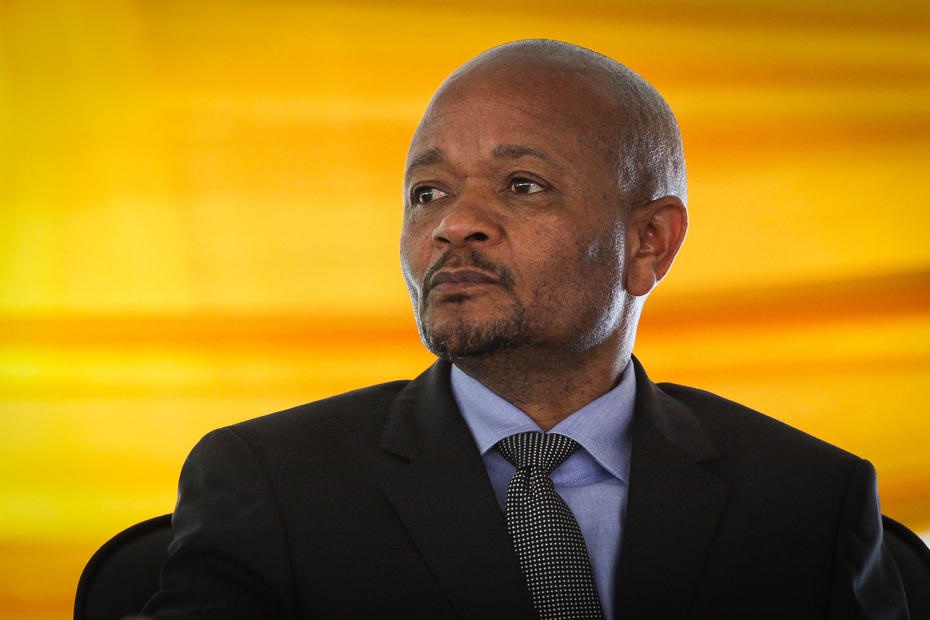
President Cyril Ramaphosa wants to make the cabinet, which was reduced from 35 members to 28 in 2019, even smaller, says Minister of Public Service and Administration Senzo Mchunu.
The government is also considering doing away with deputy ministers, who have no constitutional role in the government. Fringe benefits of political office bearers and management positions could also be curtailed as part of the government’s proposal to public service unions, Mchunu said.
Trade unions are threatening mass action due to the freezing of salaries in the civil service after years of increases above inflation.
“There is a strong feeling in the ruling party that he (Ramaphosa) should reduce the cabinet further, and this is what he is considering,” Mchunu told City Press sister newspaper, Rapport, exclusively, after a serious plea at a media conference that trade unions should accept the “salary offer” of a zero increase.
Mchunu made a moving plea that public service unions should agree to a 0% increase in salary negotiations that took place in the central public service bargaining chamber on Friday.
“These are the most difficult negotiations that have been conducted in the chamber due to the weak state of our economy, the fact that we are heading for a fiscal abyss, the way in which Covid-19 has affected us and because we are already behind with salary negotiations due to the delays with the last leg of the previous salary agreement,” he said.
The negotiations lasted all day on Friday and only adjourned at 10.30 on Friday night.
The state’s negotiators told unions that R9.4 billion could be made available for increases to officials to cover increases in the cost of living.
However, this can only be achieved by cutting other spending on the state’s wage bill, such as reducing leave benefits, abolishing special daily allowances, and abolishing pay progression.
Trade unions are objecting to this.
“It is not acceptable to us. These are benefits that were agreed to in previous negotiations but we now have to give up to finance salary increases,” said Jannie Oosthuizen, negotiator of the Public Servants Association (PSA).
On Friday night, negotiators battled to try find ways to grant increases to government officials without increasing the state’s wage bill.
The government’s negotiators made no mention of plans to downsize the cabinet, abolish the posts of deputy ministers or reduce the fringe benefits of management positions.
“We have not yet declared a dispute, because according to the constitution of the negotiating council, a dispute can only be declared 21 days after a salary claim has been instituted. This becomes due on May 6,“ said Leon Gilbert, chief secretary of the Association of Civil Servants.
However, the unions agreed that the negotiations had already reached a deadlock.
“The dispute procedures in the constitution will now have to be followed carefully to prevent later delays. Officials should have received increases by April 1.
“The PSA has advised its 235 000 members in the civil service to prepare for a strike so that they can negotiate a proper salary increase and protect existing benefits,” Gilbert said.
Read: Civil servants gear up to strike
However, according to Mchunu, it is imperative that there should be a “reorganisation of the state”. The amendments to the ministerial handbook in December 2019 were the beginning of this.
The new handbook has set a limit of R700 000 on the price of new official cars for ministers, deputy ministers, prime ministers and members of provincial executive committees.
No security upgrades have been allowed at ministerial houses since then and ministers and deputy ministers can now only occupy one state house.
“There is no longer any flying in business class (for cabinet members).
“Ministers can fly business class if they pay for it themselves,” he said.
“Even before Covid-19, there were savings that we would have had to make. These are now even more urgent.
“There was great dissatisfaction when these were announced - people almost burst into tears. They didn’t like it, but the survival of the country depends to a large extent on savings we must make.”
| Delivering thenews you need
|

